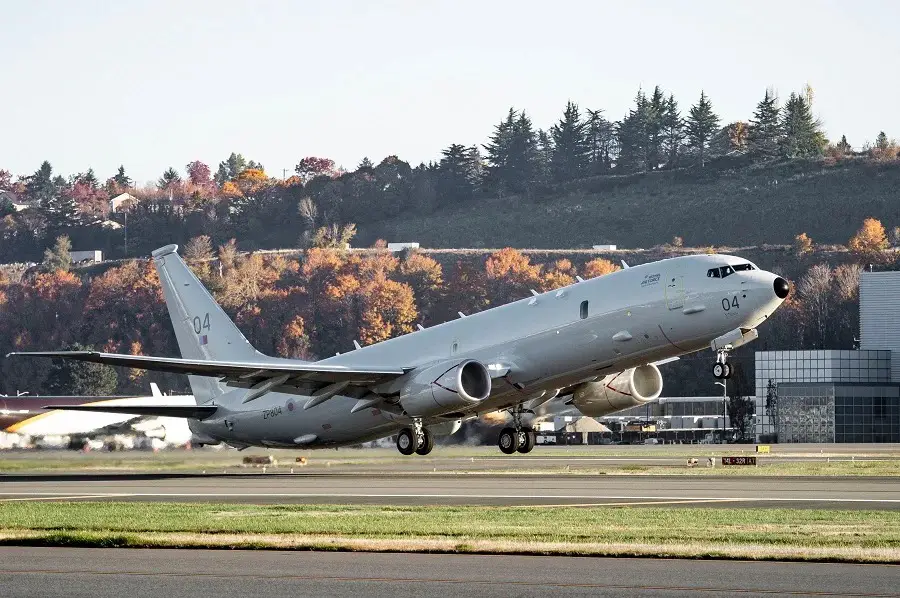A joint framework has been signed at the Royal Edinburgh Military Tattoo by representatives of the Royal Air Force (RAF) and Boeing to explore sustainable aviation opportunities on the Poseidon MRA1 fleet. The joint framework will focus on life cycle assessments, end-of-service aircraft value capture, digital tools to optimise flying activity, and environmentally sustainable maintenance activities. The initiative follows release of the Defence Aviation Net Zero Strategy which details how military aviation will contribute to His Majesty’s Government Net Zero 50 goal. Boeing was one of the first signatories of the Charter. The framework will explore opportunities to improve the resilience and operational effectiveness of the RAF’s nine-strong Poseidon fleet, whilst reducing operational costs and environmental impacts.
Steve Burnell, Managing Director of Boeing Defence UK jointly signed the framework and provided the following comment:“Boeing is proud to take this step forward with the RAF as we work together to explore opportunities to make defence aerospace more sustainable and build on our recent commitment to the Defence Aviation Net Zero Strategy and our ongoing investment in Scotland. The UK’s P-8A fleet based at RAF Lossiemouth and housed in The Atlantic Building, a £100 million joint investment by Boeing and the Ministry of Defence, provides opportunities to trial and leverage sustainable technologies that will further enhance the fleet’s operational effectiveness and reduce its environmental impact.”

“Bilateral agreements of this nature with our strategic partners will drive the Service to become more operationally resilient, by reducing supply chain vulnerability and allowing our flying activity to be more efficiently delivered. Boeing is leading the way in their proactive approach to this type of endeavour, and I am excited to see this potentially enhance one of our critical capabilities,” Air Marshal Richard Maddison OBE MA
Deputy Chief of the Air Staff said.
The Defence Aviation Net Zero Strategy outlines the steps necessary to meet the commitment to decarbonise Defence’s aviation capability, whilst also mitigating potential risks to operational effectiveness that are likely to arise because of climate change (Defence’s aviation emissions currently represent approximately 60% of MOD’s operational capability emissions). Boeing and the RAF co-chair the Defence Supplier Forum Climate Change and Sustainability Aviation Group that provides leadership and strategic direction on defence aviation activity. Initiatives already underway include the RAF working with industry leaders Zero Petroleum Ltd to research and develop synthetic fuel technology, which has the potential to eventually eliminate reliance on fossil fuels. In November 2022, the RAF and industry partners flew a Voyager (A330) using 100% sustainable fuel, a world first for a military aircraft of its size, and the first of any aircraft type in the UK.















